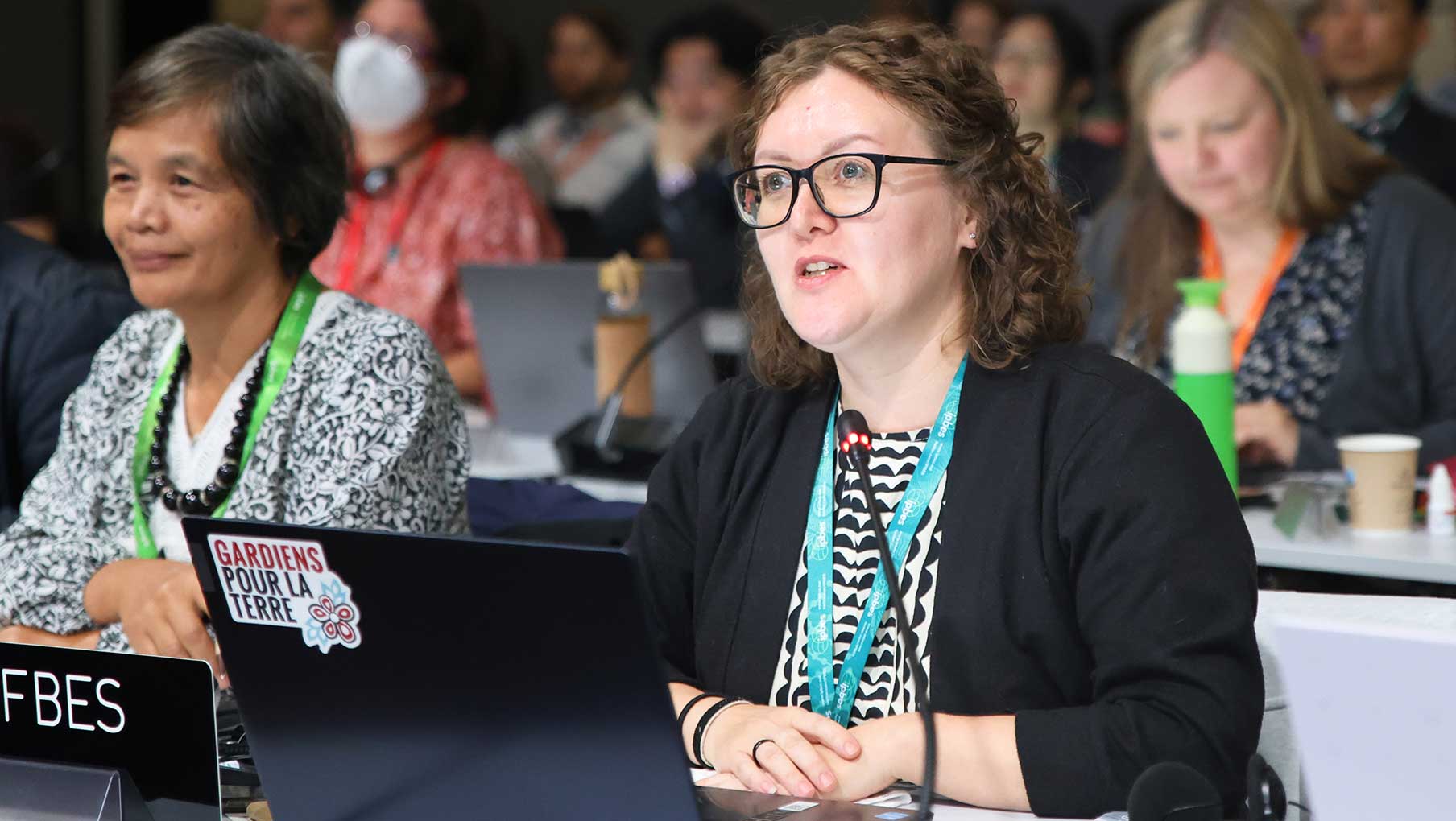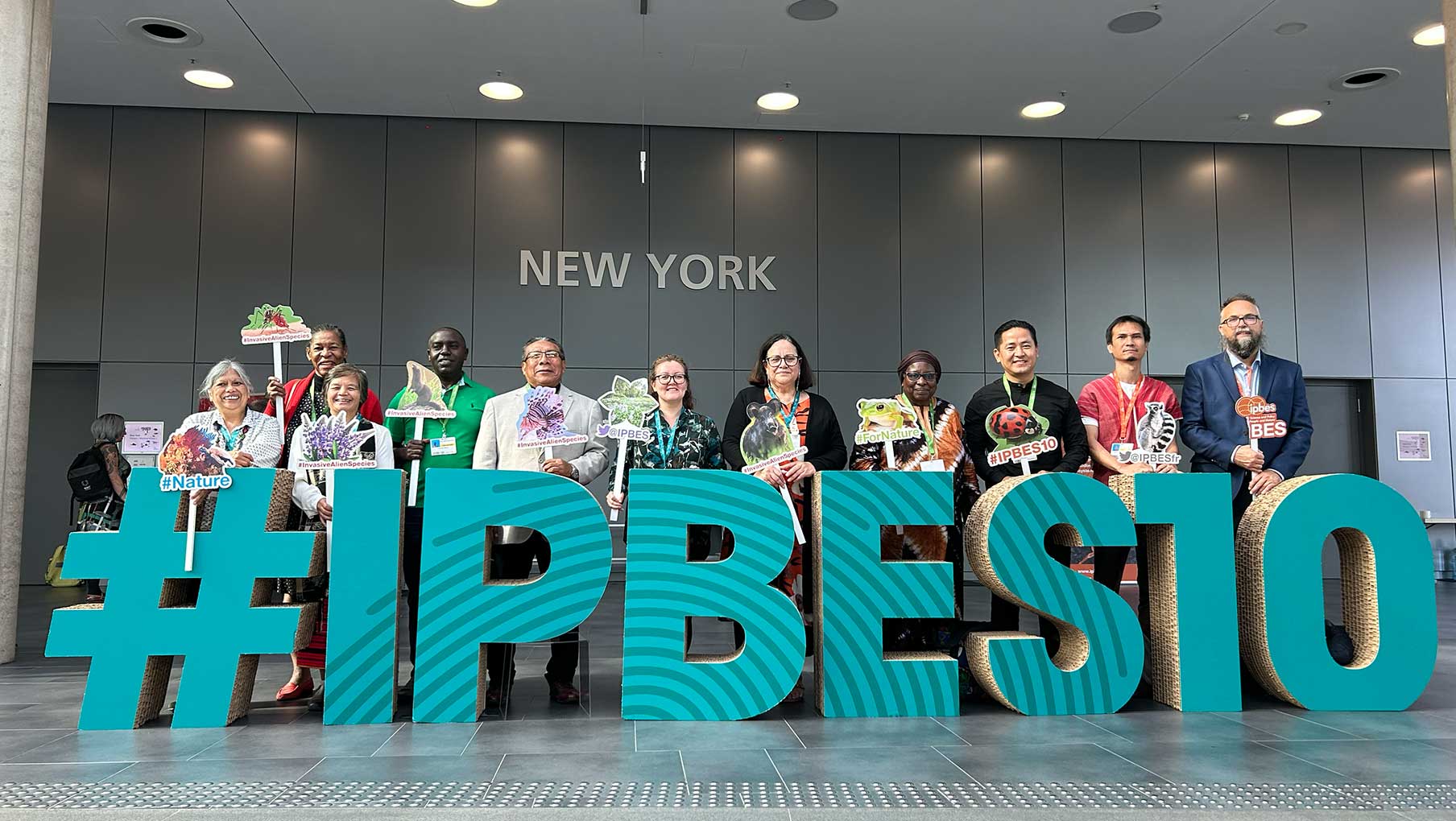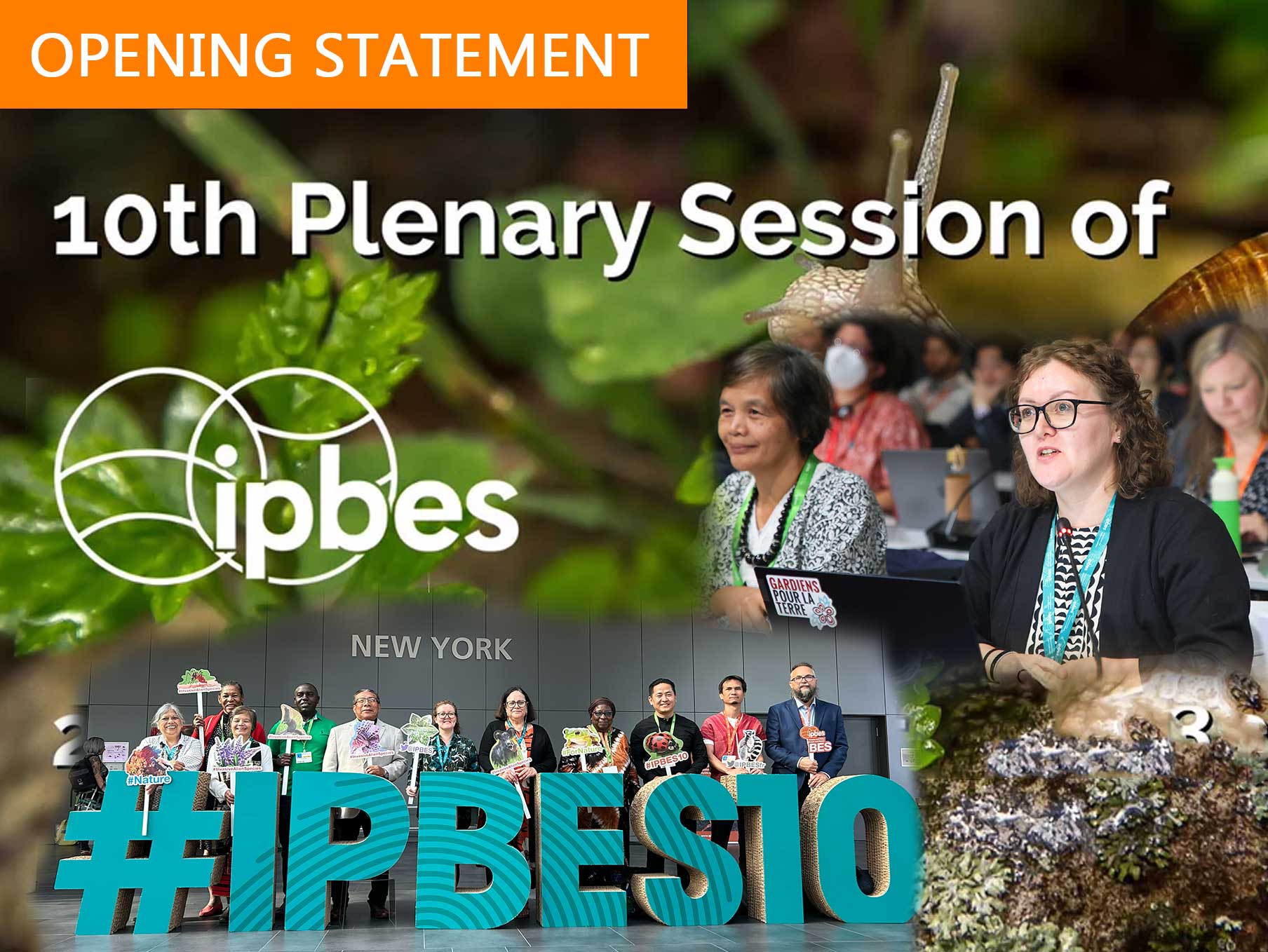International Indigenous Forum on Biodiversity and Ecosystem Services (IIFBES)
August 28, 2023 | Bonn, Germany
The (IIFBES) joins widespread praise for the achievements of the IPBES Global Assessment, and its impact on the adoption of the Kunming-Montreal Global Biodiversity Framework.
Its findings grounded and elevated general understanding about the contributions being made by Indigenous Peoples and Local Communities to the global conservation and sustainable use of biodiversity, whilst highlighting systemic drivers of diversity loss, needing fundamental changes in human-nature relationships.
We urge IPBES members to use the findings from the various IPBES assessments, including Values and the Sustainable Use of Wildlife to put human rights, including those of Indigenous Peoples at the centre of the revisioning, implementation, monitoring and reporting of National Biodiversity Strategies and Action Plans.

ON VALUES ASSESSMENT
Values are critical to our ways of thinking and doing. Diverse ways of valuing nature have been displaced by other values, leading to nature degradation, social conflicts and violations of indigenous peoples' rights. The values assessment highlights respect for multiple value systems in the new global biodiversity framework relevant to addressing problems of aggression, displacement, and criminalisation when Indigenous Peoples defend nature based on our values.
We hope this report will open the valuation spectrum to other visions, helping decision-makers to prevent socio-environmental conflicts, arising from the dominance of unsustainable perspectives in the valuation and management of nature.
ON INVASIVE ALIEN SPECIES
The IPBES assessment on Invasive Alien Species has enabled us to examine our own narratives towards understanding better this phenomenon. Its drivers and impacts are more complex than biological relations leading to species extinctions, including human and environmental health, ecosystems degradation and fundamental human rights. Hence strategies must consider other environmental drivers such as climate change and pollution and take a holistic approach to addressing IAS. Such complexity calls for concerted and collaborative efforts of governments, scientific communities and Indigenous Peoples and Local Communities to effectively manage and control invasive species.
ON IPBES INCLUSION OF INDIGENOUS AND LOCAL KNOWLEDGE AND PARTICIPATORY MECHANISMS FOR INDIGENOUS PEOPLES AND LOCAL COMMUNITIES
IPBES10 will review its performance towards the inclusion of indigenous and local knowledge. Today we can sincerely say that its participatory mechanisms for IPLCs have progressively expanded. Structured dialogues on key issues covered in the different thematic assessments, and providing feedback on 1st and 2nd order drafts, have made these more specific and substantive. The organization of field trips to indigenous communities, as a part of the dialogues, allows direct exchanges about traditional practices and collective actions.
Participation in such dialogues has increased, with the presence of indigenous peoples from 7 geo-cultural regions. However, a gap remains in providing funding for indigenous representatives from developed countries, thus undermining their equitable participation in the work of IPBES
These are some perspectives from Indigenous Peoples and local communities participating at IPBES10, and we look forward to making time for further exchanges on these topics during this busy week.
IIFBES thanks everyone for your attention.


